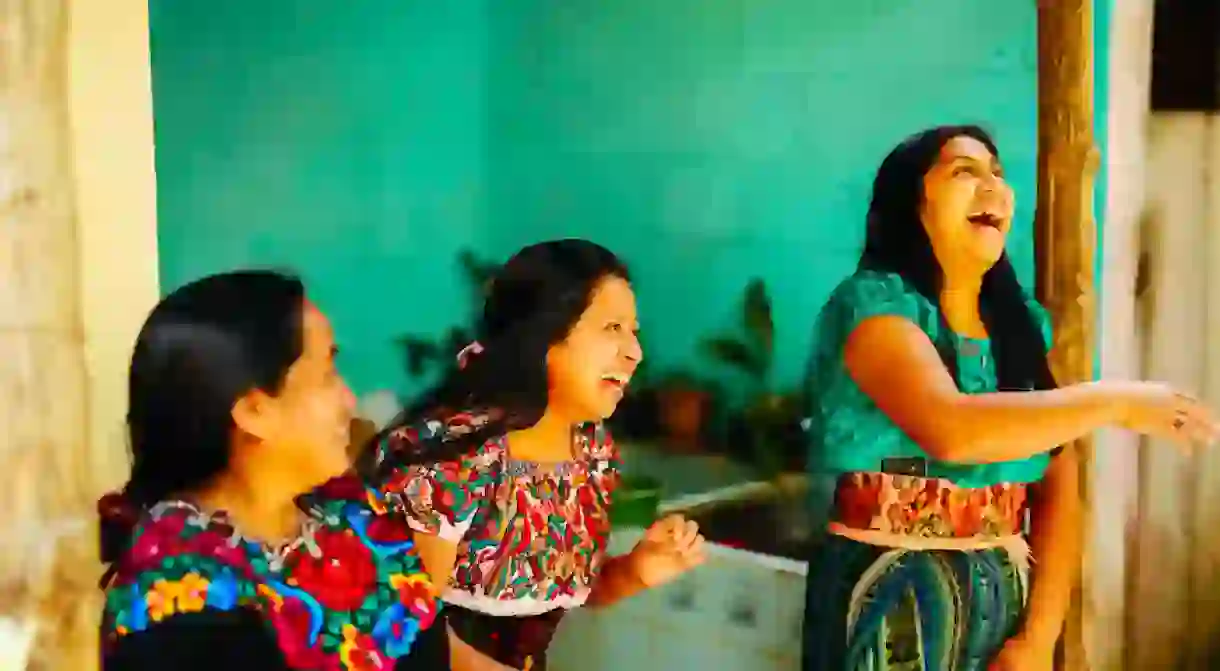Meet The Guatemalan Artisans Behind Resort Accessories Label

Rural indigenous women represent one of the world’s most marginalized populations according to the UN’s Women Watch organization. But accessories labels like Mercado Global are tapping into the talents of rural women who are skilled artisans. Working directly with indigenous Guatemalan women like Marta Julia, who says she enjoys her job at Mercado Global, “because of the opportunities I have to grow, not just as a provider for my family, but as a leader and a person,” proves that socially conscious fashion is more than a fad. It’s affecting change.
The history of ancient Mayan loom weaving is popular amongst Guatemalan artisans, many of whom are women. According to Mayan myth, this type of weaving originated with the Mayan Goddess Ixchel, who took numerous forms associated with femininity, including the moon, water, childbirth, and weaving.

Ruth DeGolia, the Executive Director of Mercado Global, came up with the idea of selling artisan-woven handbags from her Yale dorm. Over a decade later, her company employs hundreds of Guatemalan women, providing them not only with skilled jobs, but with opportunities for education and community leadership. Not only is Mercado Global’s line of handmade accessories socially conscious, it’s making a splash on the resort scene.

Mercado Global’s model proves how industry can help overcome adversity. According to the Guatemalan Literacy Project, 75 percent of indigenous Guatemalans live below the poverty line, and 58 percent live in extreme poverty. The same group notes that a Guatemalan woman stays in school for, on average, 1.8 years. Without literacy or computer skills, rural artisan women are faced with systemic challenges when it comes to taking charge of their economic growth. So when you’re investing in a spring crossbody bag, you’re also investing in the lives of the Guatemalan women who made it.


The company also seeks design ambassadors to travel to Guatemala and teach artisans new technical skills.

Paulina Chiroy Pixtay has worked for Mercado Global for four years as a weaver, and through the design ambassador program has recently honed her jewelry-making skills. “I enjoyed having learned how to make new types of jewelry,” she says.

From the International Women’s Day Teresa Pouch to the Dolores Weekender (perfect for the jet set woman who’s always on the move) Mercado Global’s line is devoted to enacting feminism through fashion.

Rosario Linda Cortin Xorosin, an expert weaver, struggled to sell her weavings before employed by Mercado Global. Today, she supports herself and three children, who she hopes can one day attend college “to pursue their own dreams.”

Despite systemic poverty, Guatemala’s rich culture and landscape—from the ancient Mayan sites to the volcanoes and lush rainforests—provide inspiration for a collection that’s as much about the indigenous people as the products they produce.














